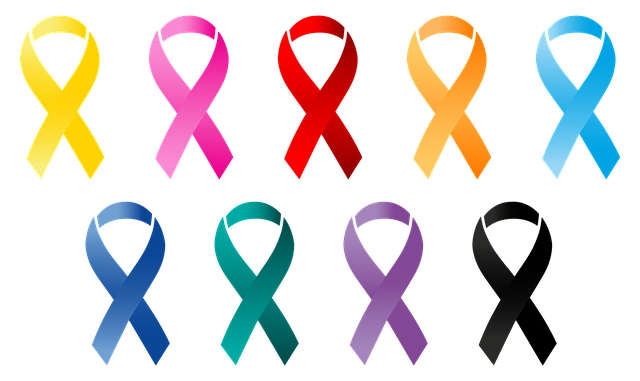BLOGS
Health For All: Celebrating World Health Day This 2023
World Health Day is a global event celebrated each year on April 7th. World Health Day seeks to increase awareness of health and well-being for all this year.
This year marks the 75th anniversary of World Health Day, and it is a time to celebrate the progress made in improving global health outcomes over the years. On this day, we also look ahead with optimism to continued efforts to make health and well-being accessible to everyone, everywhere.
As part of this celebration, we will examine some of the challenges faced by communities around the world regarding access to healthcare, prevention and treatment measures against noncommunicable diseases (NCDs), and emergency preparedness and response, among other topics. We will also explore ways different stakeholders can help ensure that “health for all” becomes a reality.
Access to Healthcare
Access to quality healthcare is one of the most pressing issues in global health. Millions of people worldwide still lack access to basic services such as primary care, immunizations, and essential medicines. In some parts of the world, physical barriers like distance and inadequate transportation make it difficult for individuals to seek medical treatment when needed.
In other areas, cultural or systemic factors may prevent individuals from seeking necessary care because of a lack of understanding or trust in the healthcare system. Poverty is another significant barrier limiting an individual’s access to medical care due to financial constraints or a lack of insurance coverage.
The lack of access to quality healthcare significantly affects public health, with those living in poverty and the most vulnerable populations being at the greatest risk. It is estimated that over half of all deaths globally are due to preventable causes that could have been treated or avoided with better access to healthcare.
In addition, millions of people suffer from chronic diseases and disabilities that could be managed more effectively with appropriate medical services. These conditions have a significant financial impact on individuals, their families, and their health systems.

Focus on Noncommunicable Diseases (NCDs)
Noncommunicable diseases (NCDs) such as cancer, heart disease, and diabetes are the leading cause of death worldwide. NCDs disproportionately affect low- and middle-income countries, accounting for more than 70 percent of all global deaths.
As these conditions become even more prevalent worldwide, it is important to continue progressing in prevention and treatment efforts. This includes raising awareness about lifestyle changes that can reduce the risk of developing an NCD, increasing access to early diagnosis and care services, and encouraging appropriate management strategies to help maintain good health outcomes.
Emergency Preparedness and Response
In addition to working to prevent illnesses and promote better health outcomes, it is essential to have a plan in place for responding to health crises. This includes natural disasters like floods and earthquakes and disease outbreaks like the COVID-19 pandemic.
Improving emergency preparedness and response efforts helps reduce the impact of a public health crisis and can save lives. The World Health Organization (WHO) plays an important role in guiding and developing effective plans for crisis management and ensuring that nations are adequately resourced for prompt medical interventions when needed.
It is important to understand the impact of a public health crisis’s impact and have plans to mitigate it. Emergency preparedness and response plans should include strategies for providing access to care, identifying resources, coordinating communication across stakeholders, responding quickly to changing circumstances, and managing potential conflicts.
Planning should also include risk management approaches such as assessing vulnerabilities and weaknesses in the system, developing contingency plans, and targeting interventions for specific populations.
Mobilizing Stakeholders
Ensuring universal access to healthcare requires the collaboration of many different stakeholders at all levels, from individuals to governments. To make significant advances toward achieving “health for all,” it is essential to focus on strengthening the capacity of health systems to serve all community members.
This includes not just providing access to medical care but also enabling individuals and families to make informed decisions about their own health and well-being. Mobilizing stakeholders is important to building a strong health system, including improving access to care and information. It involves identifying key players in the healthcare system, from policymakers and community leaders to healthcare providers, researchers and citizens.
Engaging these stakeholders in collaborative efforts helps to ensure that all voices are heard when making decisions about the direction of health systems. It also helps to create an environment where everyone is invested in the same goal – achieving better health outcomes for all members of society.

How Can You Celebrate World Health Day?
1. Spread Awareness of Health Issues
One of the best ways to celebrate World Health Day is by spreading awareness about important health issues and topics. Talk with your family, friends and colleagues about how they can maintain healthy lifestyles or discuss any challenges you have faced. You can also host a health-related event like a seminar or workshop where participants can learn more about various medical conditions and treatments available.
Sharing information online through social media channels is another great way to reach a wider audience and create awareness for health-related matters. By investing in a luxury house and lot in Metro Manila, you are creating an ideal living space for yourself and your loved ones’ optimum physical well-being.
2. Exercise Regularly
Making exercise a regular part of your routine is one of the best ways to celebrate World Health Day. Doing so can help reduce risk factors for various conditions while promoting physical fitness and mental well-being.
You can engage in activities such as jogging, cycling, swimming, or even walking around the park. Properties in Crosswinds Tagaytay offer plenty of space and amenities that are perfect for exercising outdoors. With modern facilities like gyms, pools, and parks within reach, you’ll have no excuse not to keep up with your workout regimen!
3. Eat Well
Another excellent way to celebrate World Health Day is by eating well-balanced meals every day. Eating nutritious food can ensure you get all the necessary vitamins and minerals for a healthy lifestyle.
Having easy access to many grocery stores and restaurants near your luxury house and lot in Metro Manila makes it convenient to prepare home-cooked meals and eat out whenever you want. Be conscious of what goes into your body, as this can make a huge difference in terms of health benefits.
4. Get Enough Rest
Getting enough sleep is essential for our overall well-being, yet many people still don’t get the recommended 7-9 hours every night. So why not use World Health Day as an opportunity to establish healthy sleeping habits?
Make sure you have a comfortable bed and environment at home by investing in a luxury house and lot in Metro Manila so that you can rest well every night. Avoid using screens for at least an hour before bed and create relaxing pre-bedtime rituals such as reading a book or listening to calming music.
5. Support Healthcare Workers
Healthcare workers are our frontline heroes! Show your appreciation to them by volunteering or donating to organizations that provide medical services or supplies, especially during this difficult time.
You can even do simple things like sending thank you cards or writing positive reviews on various social media platforms to show your support. Having a property in Forresta is one way of showing recognition of their hard work so they can have comfortable living spaces too!
Final Thoughts
This World Health Day is an important opportunity for us to reflect on the progress made in improving global health outcomes over the years. It is also a time for us to look ahead with optimism to continued efforts towards achieving “health for all.”
As stakeholders worldwide mobilize together, we can create a healthier future by making healthcare more accessible, enhancing our response capabilities for disease outbreaks and disasters, and focusing on prevention and treatment measures against NCDs. By working together, we can ensure that everyone has access to quality healthcare and can lead healthier lives.
Suggested Read: State Of National Emergency: Everything You Need To Know
Suggested Read: Health Emergency Reponse: What You Need To Know
Suggested Read: How PropTech Boosts Productivity In These 5 ways
Suggested Read: Life Amidst A Technological Pandemic Response
Suggested Read: International Stress Awareness Day














